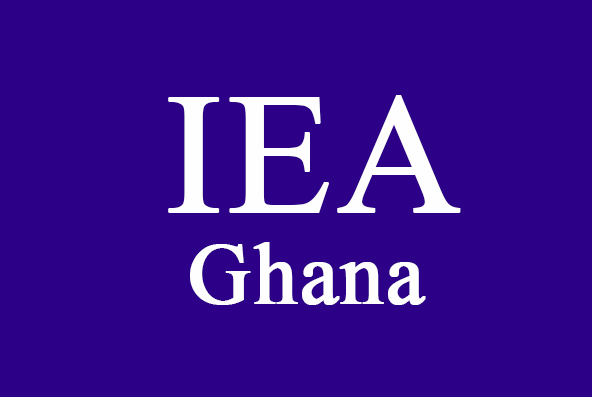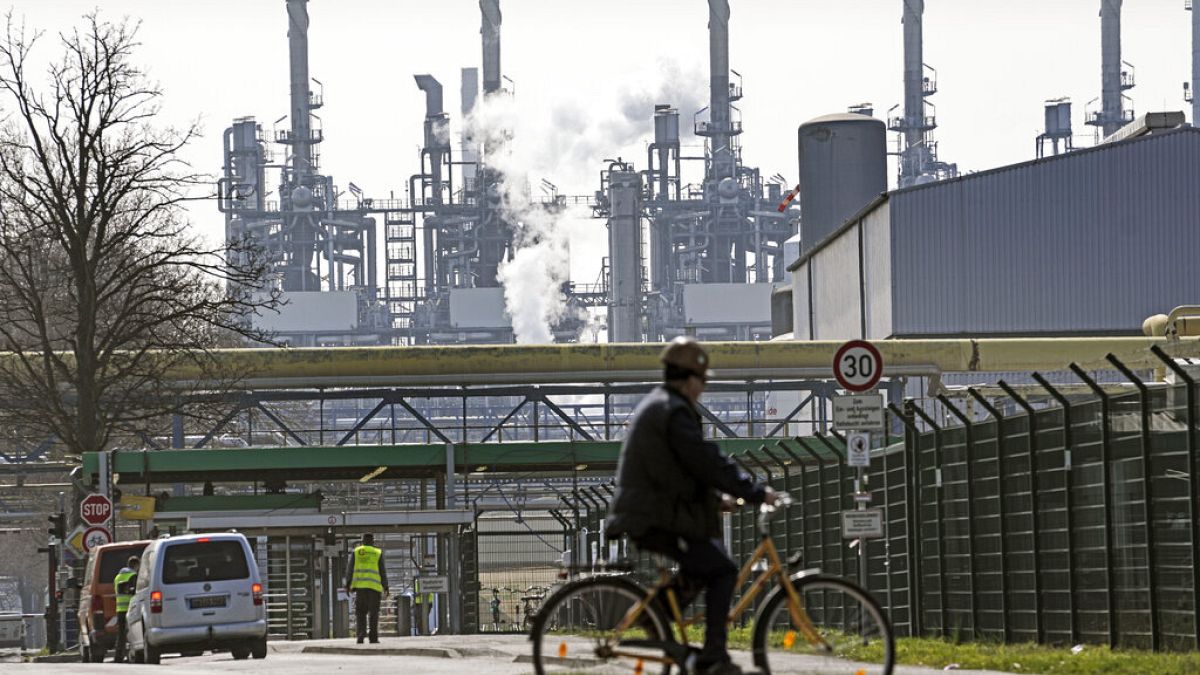The Central Bank of Nigeria has banned commercial banks from granting Naira loans using foreign currency as collateral, with a 90-day deadline to wind down existing loans secured with dollar-denominated collateral.
Nigeria is set to receive a $1 billion loan from the African Export-Import Bank (Afreximbank) as part of a larger crude oil prepayment facility to boost its forex reserves and economy.

Analysts in Argentina anticipate a potential further slowdown in monthly inflation and a possible rate cut as the government becomes more confident in its efforts to control prices, with the benchmark interest rate potentially being reduced again.

Rent in the UK is expected to increase by 13% over the next three years, outpacing wage growth and exacerbating the ongoing cost of living crisis, according to research by the Resolution Foundation. The surge in rent prices is attributed to the property market's recovery from the pandemic and wage growth, and the foundation warns that renters will face large rent hikes in the future. The analysis suggests that rent growth will exceed earnings growth by 13% over the next three years, posing a significant challenge for families and emphasizing the need for policy solutions and increased housing construction.

Goldman Sachs economists predict robust economic growth in 2024 with no significant threat from inflation, projecting a GDP growth rate of 2.5% and anticipating potential rate cuts by the Federal Reserve. However, analysts provide a more cautious view on the stock market, warning of volatility and risks due to extremely elevated stock concentration.

Air transport from the UAE to Saudi Arabia increased by 13% in March due to rising demand during Ramadan, with airlines such as flydubai and Etihad Airways increasing their services to support the Hajj season.

JPMorgan Chase chief Jamie Dimon has warned that US interest rates could potentially surge to more than 8% in the coming years due to record US debt, global conflicts, and other inflationary factors. Dimon expressed concerns about the possibility of stagflation, but stated that JPMorgan would continue to perform well. The Federal Reserve has been unsuccessful in reducing inflation, and Dimon's warning aligns with increasing concerns about the US debt and its potential consequences.

The Daily Beast reports that the insurance company, Knight Specialty Insurance Company, which provided the $175 million bank fraud bond for Donald Trump, is not licensed in New York and has not been vetted for financial stability.
China's plan to boost its economy by overproducing goods and flooding global markets has the rest of the world concerned, as it could have destabilizing effects on the global economy and impact green-energy exports.
India's wheat production for the 2024-25 season is projected to reach nearly 106 million tonnes, which is an increase from the previous year but falls short of the government's forecast of 112 million tonnes.

Credible Operations provides tools and information to help improve your finances, including current mortgage rates and tips for getting the best rate.

China's growing influence in the green energy industry is causing concern among U.S. and European officials due to the flood of subsidized exports, leading to discussions of potential measures such as tariffs to address the issue.

Zimbabwe has introduced a new gold-backed currency called Zimbabwe Gold (ZiG) in an attempt to stabilize its struggling economy, but economists warn that a gold-backed currency does not guarantee stability or price control.

Food prices in the world's richest nations rose at the slowest rate since before the Russian invasion of Ukraine, with food inflation declining for the 15th consecutive month in February, according to the Organisation for Economic Co-operation and Development (OECD). However, Turkey experienced a rapid rise in food inflation due to a decline in its currency, while the UK saw prices for food and non-alcoholic beverages slightly below the OECD average.

Nigeria is set to receive a $1.05bn syndicated loan backed by oil from the African Export-Import bank next month in a bid to revive the economy and enhance the supply of hard currency in the local foreign exchange market.

It is becoming increasingly difficult to afford a home in Canada, with high interest rates and soaring housing costs pushing affordability to new lows, particularly in Vancouver, which is in a "full-blown crisis," according to the Royal Bank of Canada's latest housing affordability report. Affordability has also declined in Toronto, Ottawa, Montreal, Halifax, and Calgary, and the situation is expected to continue unless there is a cut in interest rates.

The global space economy is projected to reach $1.8 trillion by 2035, driven by increased activity in industries such as satellite communications, space technology, and defense, creating opportunities across various sectors and addressing global challenges, but leaders are warned about the growing threat of anti-satellite weapons.

Bank of America warns that Italy, France, and other European countries may face excessive deficit procedures, leading to stringent fiscal monitoring and consolidation efforts that could impact economic growth in the affected nations.

Thailand's finance ministry is set to announce new property measures aimed at reviving the country's economy, including reduced transaction fees and tax deductions for home buyers.

The Bank of Canada is cautious about launching rate cuts too soon due to concerns about its credibility and the risk of inflation taking off again, despite progress in battling inflation and forecasts of reaching the 2% target next year.

Financial analyst Gary Shilling warns of potential weakness in the labor market, suggesting a "delayed" recession for the US economy despite its post-pandemic resilience.

Dining out and fast food have become increasingly unaffordable for the middle class in 2024 due to factors such as inflation, stagnant wages, rising living costs, changes in the restaurant industry, and a shift in the perceived value of dining out compared to home cooking.

Nigeria's foreign exchange reserves have fallen by almost $1.02 billion in 18 days, reflecting the Central Bank's efforts to strengthen the Naira, and experts project a further decline in the coming years.
The Canadian House of Commons resumes sitting ahead of the federal budget; big names in the Canadian energy industry meet in Toronto; the national housing market is expected to rebound; Boeing experiences another malfunction; TSMC receives grants from the Biden administration; Jamie Dimon outlines top concerns in his shareholder letter; Blackstone takes Apartment Income REIT private in a $10 billion deal; Wall Street holds steadier after a bumpy week; college students warned about risks of payment apps; Malaysian shoe company apologizes for logo controversy; Tesla's forthcoming Robotaxi will boost company's value; gold and oil prices are on the rise in global commodities markets; Palestinians return to destroyed streets in Khan Younis; Haitian police recover hijacked cargo ship after shootout with gangs.

European Central Bank interest-rate setters are beginning to discuss whether to follow up their anticipated rate cut in June with another move in July or to wait until September, as inflation continues to slow and some officials express a preference for a second cut later in the year.

The Central Bank of Nigeria (CBN) has reduced the buying rate of the dollar for Bureau de Change operators (BDCs) to N1,101 per dollar in response to their request for a review, prompting the operators to sell at least the 1.5% rate to buyers.

JPMorgan Chase CEO Jamie Dimon expects the US economy to grow this year, but is concerned about geopolitical events and political polarization that may create risks not seen since World War II. Dimon also warns about deficit spending, the need for remilitarization, and the potential for higher inflation. However, he sees promise in the use of artificial intelligence in various aspects of the bank's operations.
Wall Street and global markets face uncertainty as investors are concerned about the likelihood of a Federal Reserve rate cut, as well as the impact of recent natural disasters, upcoming economic reports, and policy meetings.

Egypt is facing an energy crisis with power blackouts due to a shortage of liquified natural gas, which could further impact its economic recovery and foreign exchange reserves.
Surging oil prices, driven by geopolitical tensions in the Middle East, pose a serious threat to the US economy, potentially hurting consumer spending, delaying interest rate cuts by the Federal Reserve, and affecting the November election.

Inflation in the United States disproportionately affects low-wage earners, while benefiting the wealthy through the "wealth effect" and access to inflation-resistant investments, creating an uneven distribution of economic impact. Additionally, the job market favors blue-collar workers over white-collar workers, who are facing greater challenges and job insecurity.

The Apex Bank in Ghana reports a significant increase in public debt after the country agreed to a $3 billion Extended Credit Facility from the IMF, with the debt mainly attributed to the depreciation of the cedi; however, despite the increase in cedi terms, the debt has actually decreased in US dollar terms, and the depreciation of the cedi could have negative implications such as increased import costs and rising inflation.

The Institute of Economic Affairs (IEA) calls on the government to take responsibility for the poor macroeconomic outcomes from 2020-2022, attributing them to inappropriate policies and excessive spending and borrowing, alongside external shocks, which compounded Ghana's economic crisis.

The fear of commercial real estate volatility and its impact on banks has increased, with $929 billion in commercial real estate loans set to mature in 2024, causing potential problems for borrowers and lenders in an environment of higher interest rates and softer demand, particularly in the office segment. Small banks have higher exposure to commercial real estate compared to larger banks, and banks with high concentrations of uninsured deposits and commercial real estate loans are at increased risk of liquidity problems and potential failure.
The U.S. workforce is getting older, with a growing number of people aged 65 and over still working, which has both positive and negative implications for the economy and younger generations.

The International Monetary Fund (IMF) warns that the high proportion of UK homeowners on fixed-rate mortgages could lead to declining consumption, house price falls, and increasing defaults if interest rates remain too high for too long, as the impact of higher rates tends to be weaker in countries with a high proportion of fixed-rate mortgages. The IMF also highlights concerns about the private credit market, as lending from regulated banks to the "more opaque" world of private credit poses potential risks to financial stability.

Traders are now expecting two quarter-point interest-rate cuts from the Federal Reserve this year, instead of the previously anticipated three cuts, as US economic data remains resilient and Fed officials express reluctance towards easing.

Treasury Secretary Janet Yellen's visit to China ends with no major breakthroughs in trade discussions, highlighting the lack of trust between the two countries and the challenge of addressing rising friction over trade, investment, and national security.

German industrial production increased by 2.1% in February, raising hopes that the country's economy may soon recover from a recent recession, although overall production remains below pre-pandemic levels due to various challenges faced by the manufacturing sector.

U.S. Treasury Secretary Janet Yellen warned that the United States will not tolerate the decimation of new industries by subsidized Chinese imports, referencing the previous impact on the U.S. steel sector, during her talks with Chinese officials in Beijing.

Bank of Japan Governor Kazuo Ueda has successfully simplified the bank's complex monetary stimulus framework and intends to continue adjusting policy according to changes in the economy.

The supermarket sector in Australia is not monopolized, but rather dominated by a small number of buyers who have the power to push down prices and terms for their suppliers, while divestiture is unlikely to be the right remedy; however, divestiture powers could be useful in other parts of the economy, such as the airline industry and the ownership of toll roads.

The IMF has asked the Pakistani government to increase the gas tariff for captive power plants in line with the price of RLNG from July 2024, despite the government seeking an extension until December 2024 to complete the task, as they do not want to raise tariffs for domestic consumers.

The dollar is steady ahead of U.S. inflation data while the yen is near 34-year lows as traders await possible action by Tokyo to support the weakening currency.

Seventy-five percent of employers in 21 European countries were unable to find workers with the necessary skills in 2023, compared to 42% in 2018, indicating a significant increase in skill shortages across Europe.

Commitment fees paid by Kenya on untapped external loans in the six months to December 2023 reached Sh833.85 million due to a weak shilling, putting the total for the year on track to surpass the previous year's fees, which were Sh1.35 billion.

The U.S. and China are increasing collaboration on financial stability through simulations of financial shocks, aiming to establish communication lines and identify potential risks.

European markets are expected to have a steady start to the week as the European Central Bank is anticipated to keep rates unchanged but potentially provide hints about future rate cuts, while investors analyze U.S. inflation data and await the release of U.S. PPI data, the minutes from the Fed's March meeting, and UK GDP data.

Despite the high number of farmer suicides in Maharashtra, corruption and paper leaks in government job exams are driving individuals like Ganesh Kale to the brink of taking their own lives.

Canada's housing affordability crisis will worsen in the coming years without significant policy reforms to boost housing supply, with an estimated need for 320,000 housing units annually until 2030 compared to recent completion levels of around 240,000, according to a report by Royal Bank of Canada. The report suggests various ways to address the shortage, including increasing affordable rentals and social housing, speeding up project approvals, and incentivizing the use of prefabricated components. The housing crisis has spread throughout Canada, impacting both home prices and rental affordability.